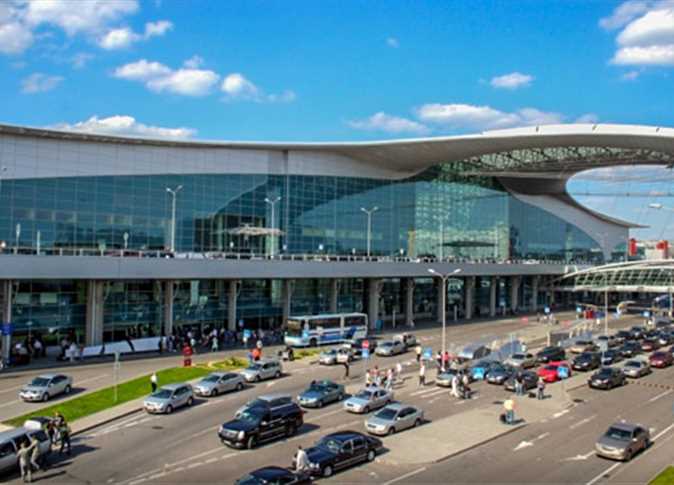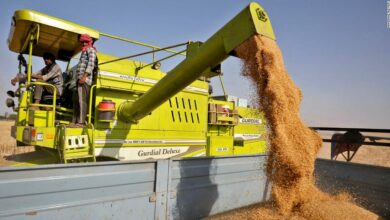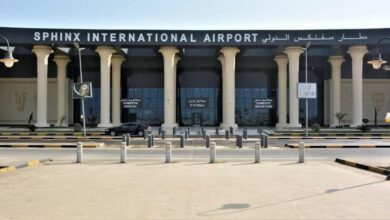Egypt’s largest publicly traded lender, Commercial International Bank (CIB), signed an LE86 million loan agreement on 23 October with two private sector companies, Medsofts and Wadi Group, for the creation of the Nile Stevedoring and Storage Company (NSSC).
The NSSC is conducting a four-phased project that will begin in mid-2012 to improve the transportation of grains in Egypt using the Nile River.
Phase one involves building a floating berthing terminal at the Port of Alexandria to receive shipped grain imports, amid increasing local demand.
It will cost LE212 million with the remainder of the money being raised by the companies’ shareholders. This phase is expected to create 300 new jobs.
“The decision to build a floating station was a response to the lack of available berthing space at Alexandria port,” Salah Tawfik, NSSC managing director, told Al-Masry Al-Youm.
The floating station will be located 1km off the port in the middle of the Nile.
Once the grains are received they will either be put into storage silos or transported across the Nile using barges – a technique that is new to the country, Tawfik said.
This should reduce the waiting time of ships at berthing stations and be more fuel efficient, as it replaces the need to use trucks and road transportation, the project’s advocates say.
Barges can carry between 400 tons to 1500 tons of grains, compared to average truck capacity of 50 tons, Tawfik said. The project will facilitate receiving 2 million tons of grains every year. Egypt’s grain imports come mainly from Brazil, Argentina and Ukraine.
Phase two of the project will involve building soya bean crushing plants to extract the oil at a cost of LE400 million, a sum that also includes the cost of the land. This phase will create 200 new jobs.
NSSC has a capitalization of LE90 million and expects to increase this to LE250 million by December.
Between 2008 and 2010, Egypt’s consumption of wheat increased by 25 percent, corn by 14.4 percent and fava beans by 12.8 percent.
Lending to the private sector
The CIB loan comes amid widespread fears that private sector activity in Egypt has slowed due to uncertain business and security climates in the transitional phase.
It also comes as economists have raised concerns at the government’s strategy to fund the budget deficit by borrowing from local banks. Some argue that this strategy will crowd out the private sector as local banks will have less available liquidity for them.
“It is an expensive strategy and has a big toll on private sector activity,” Magda Kandil, executive director and director of research at the Egyptian Center for Economic Studies, said.
CIB’s involvement in the project could partly be explained by the fact that it is among the local banks that have not increased their holdings in Treasury bills, the instrument that government has used to raise funds locally. By September, CIB had cut its investments in T-bills by 24 percent to LE7 billion.
This compares with Bank of Alexandria (BoA), whose major shareholder is Italy’s Intesa Sanpaloa SpA, which increased its holdings by 70 percent to LE8.16 billion. BoA’s second largest shareholder is the Egyptian government.
Wadi Group vice president Ramzi Nasrallah told Al-Masry Al-Youm that the company has not had any problems in raising funds for their operations, but none of the banks it uses are involved in lending to the Egyptian government. They are: HSBC, Bank Audi, Suez Canal bank, Arab Bank, Ahli United, the Egypt Gulf Bank, CIB, and the International Finance Corporation.
Wadi Group produces agricultural and industrial products, and has recently been involved in providing food supplies to Libya. Its main shareholder is a UK-based corporate called Frieje Engineered Solutions Company with other smaller shareholders based in Egypt and Lebanon. It was set up in 1984.
Medsofts is an Egyptian commodity trading company set up in 2001. It provides logistical solutions to distribute sugar, corn, soya beans, pulses, wheat, edible oils and cement to markets in Egypt, Sudan and elsewhere in the Middle East and North Africa region.




